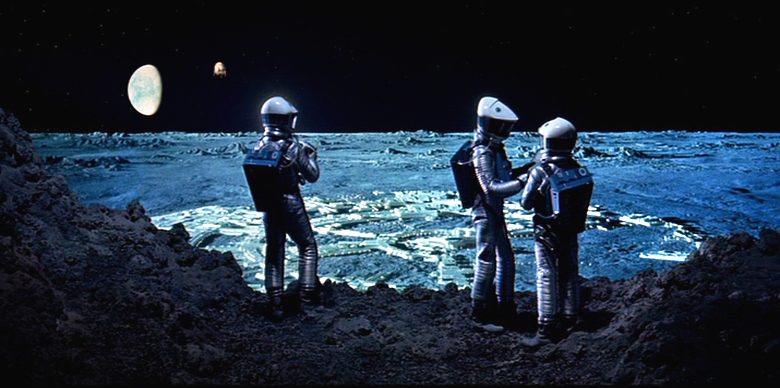Just 500 years ago, humanity was going through a migratory revolution which allowed us to fully explore the world, and settle colonies in areas we weren’t entirely sure existed. This process led to the creation of new countries, cultures, and of course, the destruction of both of these things along the way.
Today, we stand at a similar crossroads, but our destiny is not yet set in stone. We must act upon what it is that we truly want as a species. If we want more war, we can have more war. If we want peace and cooperation, we can also have this. Regardless, it will be our collective decisions as humans which will shape our future as a species.
Humanity has not yet seen the most of our potential, and it is still possible that we can accomplish things beyond our greatest imagination. However, if we are not able to work together as a species we could end up losing our ability to build, instead choosing a path of destruction. The future is still in our hands, so let’s take a look at what could be in store for our destiny.
Space Colonization – Space, Moon, Mars, and Beyond
Since we face an array of different apocalyptic scenarios on a daily basis, one way for humanity to ensure our future survival is to branch out and become an interplanetary species. As such, scientists such as Stephen Hawking have reportedly called for the colonization of the moon and mars.
If we can do this, humanity will be one step closer to becoming a Type 1 and above civilization, placing our destiny in our own hands for eternity. However, it is not just the first step of space colonization that will take us to this level, but also a commitment to cooperation, diplomacy, and peace as well. In an era of ever-increasing weaponization, the weapons of the modern world would prove to be drastically more destructive than any previous conflict known in recorded history.
Plans for colonizing space have been popping up all around the world lately, with organizations like SpaceX, Asgardia, and others emerging with a plan on space colonization. President Trump also said in his inaugural address that humanity was “ready to unlock the mysteries of space,” prompting plans for “low Earth orbit” missions which will later allow deep-space missions.
China has also been making some moves in the space arena, having allegedly planned missions for landing on the far side of the moon. They also have further goals of colonizing the moon and reaching Mars. China is reportedly interested in collaborating with the U.S. and other countries during this process, but doing so would violate U.S. funding agreements implemented to exclude other countries like China, and instead pursue a nationalized agenda.
The Effects of Space Colonization on Human Evolution
Perhaps the biggest mystery that comes along with space colonization is the effect it will have on our bodies. For instance, we know now that prolonged time in space without some sort of artificial gravity can cause humans to lose bone mass, aerobic capacity, and muscle mass. However, we have yet to see exactly how well humanity can survive on a permanent colony outside of Earth.
Evolutionary biologist Dr. Scott Solomon has pointed out that a colony on Mars might cause humans to evolve into a new species due to the factors of radiation, gravity, and sunlight. According to him, this change wouldn’t necessarily occur overnight, and it could take thousands of years to mark a noticeable change.
Solomon estimates that the new race of humans could have bulkier skeletons, bigger eyes, and darker skin. He claims that current human activity might already be sparking an evolution of bulkier skeletons, that less light would prompt us to evolve bigger eyes, and that higher levels of radiation and carotenoids on Mars could result in a very dark skin color, or even an orange skin color.
Not all scientists agree with the conclusions of Solomon. A group of MIT researchers question humanity’s ability to sustain life on Mars in the first place. Since we have not yet found any capability to live naturally off the land on Mars, they estimate that operating costs of a Mars colony could increase endlessly out of control.
How a Space Colony Might Work Out
For humanity to thrive on Mars, we will need to access to food, water, and climatic conditions similar to Earth. Setting aside various other variables we cannot comprehend at this point, there is a possibility that we can produce all of these things on Mars.
In 2015 NASA provided evidence of liquid water on Mars, but others have asserted that the evidence for water presented by NASA could actually be explained by the presence of dry ice. Unless we start seeing some real physical evidence of liquid water on Mars, we might not know if there is actually liquid water on Mars.
Of course, water will be the key to the colony’s survival. If the Mars colony finds a renewable source of water on Mars, and receives an endless supply of funding and resources from Earth, it is plausible for a colony to thrive on Mars, but this will take an impressive amount of cooperation and hard work.
If humanity is able to survive on a Mars colony, the next step will be to keep healthy diplomatic relationships going between the colony and Earth. If we try to produce this as a nationalistic project, the end result could be very similar scenario to the thirteen U.S. colonies declaring independence from Great Britain. With an ever-increasing number of space colonies planned, the Mars colony could conceivably be just one of the many new factions of humanity born in the new age of space colonization.











Sign up on lukeunfiltered.com or to check out our store on thebestpoliticalshirts.com.